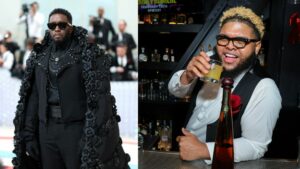**A civil jury in Dublin has found McGregor guilty of sexual assault, prompting significant backlash from retailers and the public, leading to a rapid erosion of his brand presence in Ireland.**
**Ireland's Stunning Rejection of Conor McGregor Following Guilty Verdict in Sexual Assault Case**

**Ireland's Stunning Rejection of Conor McGregor Following Guilty Verdict in Sexual Assault Case**
**The world of MMA superstar Conor McGregor faces upheaval as Ireland distances itself from the fighter in light of recent legal findings.**
In a dramatic turn of events, Conor McGregor's standing as a beloved figure in Ireland has plummeted following a Dublin civil jury's ruling that found him guilty of sexual assault. McGregor, who has cultivated a larger-than-life persona, proclaimed on social media, "The fight game awaits!" soon after the verdict, despite retailers, including hundreds of supermarkets in the UK and Ireland, swiftly removing products associated with him.
The jury's decision came in response to accusations from Nikita Hand, who claimed McGregor raped her in a hotel room in Dublin back in December 2018. The outcome awarded Hand nearly €250,000 in damages, leading the once-revered athlete to announce an appeal against the verdict. As news of the jury's decision spread, the fallout was immediate and severe; brands and retailers have since severed ties, with Proximo Spirits, McGregor's whiskey partner, announcing they would no longer use his name or likeness in marketing campaigns.
McGregor's trajectory from local MMA fighter to global sensation was once hailed as a rags-to-riches story, particularly during Ireland's economic struggles post-2008. However, a series of scandals have sparked public discontent, leading many to reflect critically upon his legacy. Petesy Carroll, an MMA journalist, asserts that while McGregor helped elevate the sport in Ireland, his recent behavior has overshadowed that achievement.
Frequent legal troubles have marred McGregor's upper trajectory. Following other notable incidents, including an infamous bus attack in New York and a pub brawl in Dublin, public support waned, but the gravity of the most recent verdict has been pronounced. As murals depicting the fighter are painted over and his likeness disappears from public view in Ireland, the sentiment has shifted dramatically.
The civil case represents a significant moment in how Ireland views celebrity behavior and accountability. The Dublin Rape Crisis Centre noted a surge in helpline calls following the verdict, as survivors and advocates began discussing the implications of such high-profile cases in the public eye.
"Rachel Morrogh," DRCC's chief executive, observed that the public's interest in McGregor's case prompted many to reassess their own experiences and perspectives on sexual violence. The highly publicized trial has sparked conversations around victim support and societal attitudes toward survivors, suggesting a shift in cultural norms around accountability.
In the wake of the ruling, gym owner Gary Scully shared his decision to paint over a mural of McGregor, a reflection of the widespread sentiment to withdraw support for the disgraced fighter. As a new reality emerges, McGregor's flamboyant persona may no longer resonate in a world increasingly demanding accountability from its heroes. Many are left wondering what future awaits McGregor both in and out of the octagon.
The jury's decision came in response to accusations from Nikita Hand, who claimed McGregor raped her in a hotel room in Dublin back in December 2018. The outcome awarded Hand nearly €250,000 in damages, leading the once-revered athlete to announce an appeal against the verdict. As news of the jury's decision spread, the fallout was immediate and severe; brands and retailers have since severed ties, with Proximo Spirits, McGregor's whiskey partner, announcing they would no longer use his name or likeness in marketing campaigns.
McGregor's trajectory from local MMA fighter to global sensation was once hailed as a rags-to-riches story, particularly during Ireland's economic struggles post-2008. However, a series of scandals have sparked public discontent, leading many to reflect critically upon his legacy. Petesy Carroll, an MMA journalist, asserts that while McGregor helped elevate the sport in Ireland, his recent behavior has overshadowed that achievement.
Frequent legal troubles have marred McGregor's upper trajectory. Following other notable incidents, including an infamous bus attack in New York and a pub brawl in Dublin, public support waned, but the gravity of the most recent verdict has been pronounced. As murals depicting the fighter are painted over and his likeness disappears from public view in Ireland, the sentiment has shifted dramatically.
The civil case represents a significant moment in how Ireland views celebrity behavior and accountability. The Dublin Rape Crisis Centre noted a surge in helpline calls following the verdict, as survivors and advocates began discussing the implications of such high-profile cases in the public eye.
"Rachel Morrogh," DRCC's chief executive, observed that the public's interest in McGregor's case prompted many to reassess their own experiences and perspectives on sexual violence. The highly publicized trial has sparked conversations around victim support and societal attitudes toward survivors, suggesting a shift in cultural norms around accountability.
In the wake of the ruling, gym owner Gary Scully shared his decision to paint over a mural of McGregor, a reflection of the widespread sentiment to withdraw support for the disgraced fighter. As a new reality emerges, McGregor's flamboyant persona may no longer resonate in a world increasingly demanding accountability from its heroes. Many are left wondering what future awaits McGregor both in and out of the octagon.



















